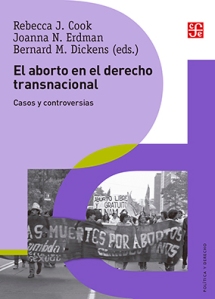SUBSCRIBE TO REPROHEALTHLAW: To receive these updates monthly by email, enter your address in upper right corner of this webpage, then check your email to confirm the subscription.
DEVELOPMENTS:
[El Salvador] Supreme Court ordered release of another three women serving 30 years for alleged abortions. News report, March 7, 2019. Report from Safe Abortion.
[Germany] In February 2019, the Bundestag revised the Criminal Code provision that prohibits the so-called “advertising” of abortions. Providers can now publicly announce, e.g. on websites, that they provide abortion care. News report, Feb 21, 2019.
[Isle of Man] In January 2019, the Abortion Reform Act 2019 allows abortion on a woman’s request in the first 14 weeks of pregnancy. Abortion at 15-23 weeks’ gestation in cases of sexual assault, severe fatal impairment, or risk to the woman’s health. effective May 2019. Abortion Reform Act 2019.
Kenyan High Court upholds human and constitutional rights to maternal dignity and reproductive healthcare: J O O (also known as J M) v Attorney General & 6 others [2018] Petition No 5 of 2014, (High Court of Kenya at Bungoma). March 22, 2017. Case summary by Naitore Nyamu. Court decision. Legal Grounds III online.
Pakistan Court Orders Implementation of Measures to Address Obstetric Fistula
CRR Press Release.
SCHOLARSHIP:
Mahmoud F. Fathalla, “Abortion and Public Health Ethics,” in: The Oxford Handbook of Public Health Ethics, ed. Anna C. Mastroianni, Jeffrey P. Kahn, and Nancy E. Kass, Oxford Handbooks Online, February 2019. Article online.
[abortion law, Argentina] “Constitutional Dialogues and Abortion Law Reform in Argentina: What’s Next?” by Paola Bergallo, featured on I-CONnect Blog, Feb. 27, 2019. Article online.
[abortion law, El Salvador] “Restricted abortion law in El Salvador,” by Anibal Faúndes and Marina Padilla de Gil, International Journal of Gynecology and Obstetrics 145.1(April 2019):136. doi: 10.1002/ijgo.12759. Epub 2019 Feb 1. Article online.
[abortion law, Scotland] “Challenging Home Abortion in Scotland: Society for the Protection of Unborn Children v Scottish Ministers,” by Robert Brett Taylor and Adelyn L M Wilson, Edinburgh Law Review 23.1 (Jan 2019): 103-110 Introduction online.
[abortion law – telemedicine, Europe] “Abortion by telemedicine in the European Union,” by Tamara K. Hervey and Sally Sheldon, International Journal of Gynecology and Obstetrics 145 (2019): 125–128. Abstract. PDF at Wiley Online.
[abortion law – travel] Abortion across Borders: Transnational Travel and Access to Abortion Services, ed. Christabelle Sethna and Gayle Davis, Johns Hopkins University Press, 2019. 360 pages. Detailed overview, Author bios, Reviews, and Contents.
[abortion law, United Kingdom] “UK Abortion Law: Reform Proposals, Private Members’ Bills, Devolution and the Role of the Courts,” by Robert Brett Taylor and Adelyn L.M. Wilson, Modern Law Review 82(1) (2019): 71–104. Abstract and article.
[abortion law, United Kingdom] “The Abortion Act (1967): a biography” by Sally Sheldon , Gayle Davis, Jane O’Neill and Clare Parker, Legal Studies 39.1 (March 2019): 18-35 Abstract and article.
Conscientious objection and access to abortion in the case CGIL v. Italy, decided by the European Committee of Social Rights, by Sara de Vido, Hitotsubashi Journal of Law and Politics 47 (2019), pp.45-55. Abstract and article.
[female circumcision] “Circumcision, Female,” by Mahmoud F. Fathalla, Encyclopedia of Global Bioethics, ed. Henk ten Have (Switzerland: Springer International, 2016) Abstract and article. Encyclopedia of Global Bioethics.
[HIV transmission, stigma] “Expert Consensus Statement on the Science of HIV in the Context of Criminal Law” by F. Barré-Sinoussi et al. Journal of the International AIDS Society 21 (2018): e25161 Expert Consensus Statement. Overview in JIAS editorial.
JOBS
Links to employers in the field of Reproductive and Sexual Health Law are online here.
______________
Compiled by the Coordinator of the International Reproductive and Sexual Health Law Program, reprohealth*law at utoronto.ca For Program publications and resources, see our website, online here. TO JOIN THIS BLOG: enter your email address in upper right corner of this webpage, then check your email to confirm the subscription.



 Posted by reprohealthlaw
Posted by reprohealthlaw 



